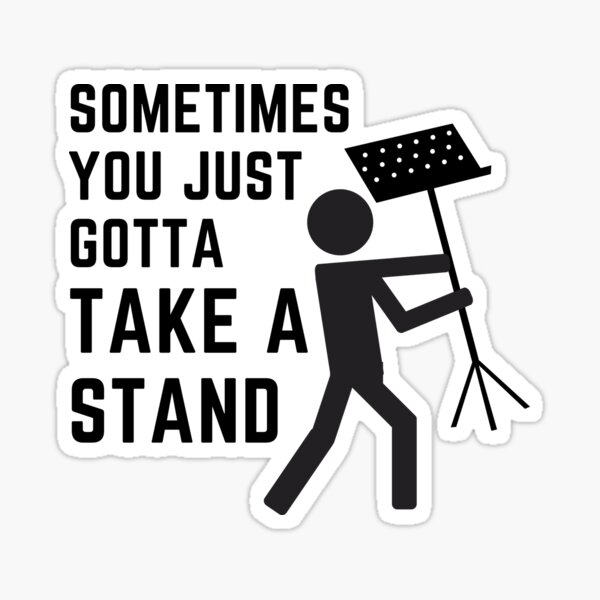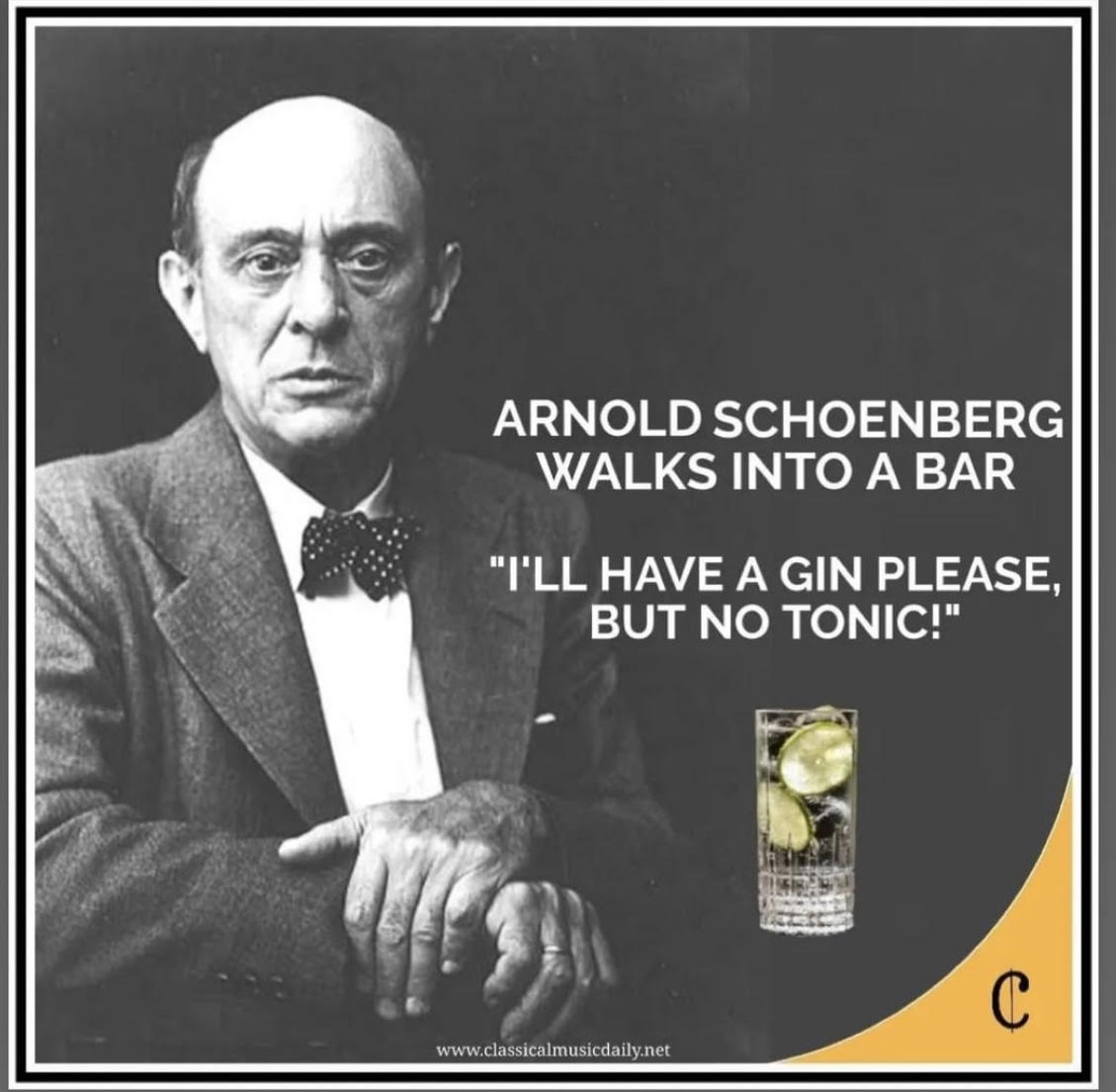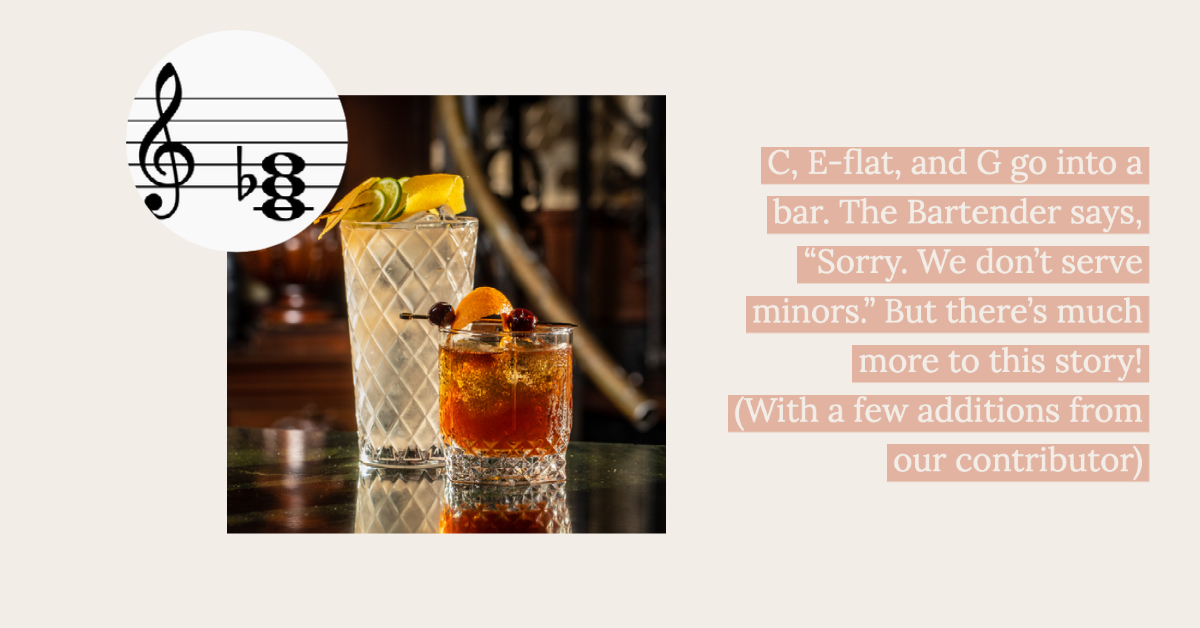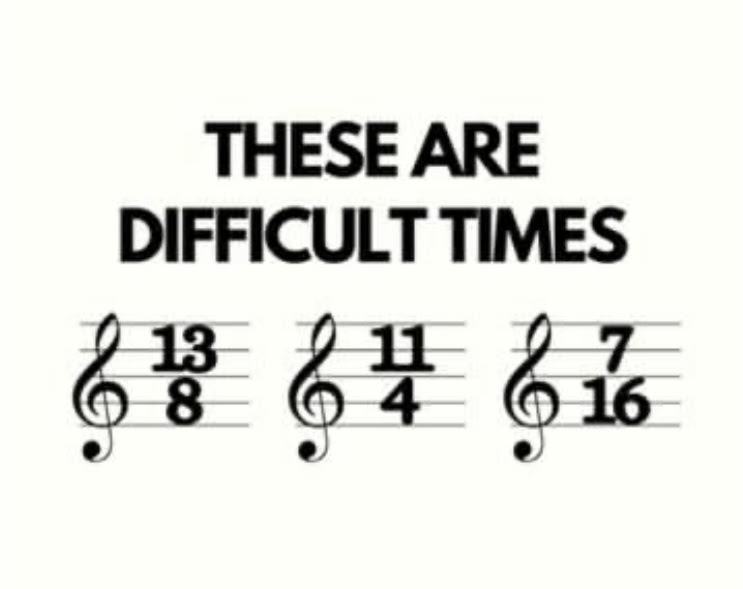It's all about the classical music composers and their works from the last 400 years and much more about music. Hier erfahren Sie alles über die klassischen Komponisten und ihre Meisterwerke der letzten vierhundert Jahre und vieles mehr über Klassische Musik.
Total Pageviews
Thursday, March 2, 2023
Conquest of Paradise
Puccini: Gianni Schicchi - "O mio Babbino caro"
13-year-old Ukrainian refugee plays poignantly on public piano, one year since the war began
By Sophia Alexandra Hall
@sophiassocialsThe young musician fled Ukraine at the start of the war last year, taking only the belongings ‘near her hands’.
13-year-old Ukrainian refugee Alisa Bushuieva performed a selection of ‘sad songs’ on a piano in a Liverpool shopping centre this morning, marking one year since Russian forces invaded her home country.
Bushuieva and her mother, Svitlana, fled their home country of Ukraine after Russian forces began dropping bombs on their hometown of Kharkiv on 24 February 2022.
The teenager and her mum subsequently spent time in Ukrainian and Polish refugee camps, where Bushuieva would play the piano to lift the spirits of those around her.
Now living in Wirral in the UK, Bushuieva was invited to play the piano in the city centre of the Liverpool ONE shopping centre this morning, exactly one year after the invasion of her home country began. Listen to a clip of her moving performance below.
Bushuieva was asked to perform by the Place Strategy Director of Liverpool ONE shopping centre, Donna Howitt, who saw her musical talents.
Howitt told PA News: “Inviting [Bushuieva] to perform felt a respectful way to support her passion and join on the solidarity with the Ukrainian community on this day.
“I had the privilege of being able to visit Alisa and hear her play and I was totally moved – she is an incredibly talented young lady and has obviously done so much to support her friends and indeed her community too.”
Before playing for the crowd that gathered around her piano, the teenager said, “this will be a very memorable occasion for me and something I will never forget”.
After performing a selection of slow and reflective pieces, the teenager marked a one minute silence, which was held across the UK at 11am to mark one year since Russia’s invasion of Ukraine.
Following the silence, Bushuieva played the Ukrainian national anthem, a work that has taken on a new meaning of hope and perseverance over the last year, with many musicians across the world performing the melody.
According to reports, Bushuieva’s performance carried an extra meaning to herself and her mother, who had recently learned that a close family friend had been killed amidst the fighting at home.
While living in Ukraine, the teenager studied at a music school, and has continued her lessons online since arriving in the UK.
Despite adjusting to life in the UK, Bushuieva shared with the Liverpool Echo that she “very much [wants] to go home”.
She told the local newspaper that she decided to perform in the city centre today because by her own testament, “music helps people feel better. It saves lives and I need to make people feel better.”
She added: “I’m very proud of my country that for a year during this hard time it still stands very strong. I hope that soon [the war] will be [over]”.
Wednesday, March 1, 2023
The Best of Abel Korzeniowski | Some of the best movie soundtracks
Tuesday, February 28, 2023
The Best of Rachel Portman (Part1) | Some of the best movie soundtracks
Monday, February 27, 2023
Big Band Symphonic Medley - John Wilson Orchestra (Arr. Andrew Cottee)
Quando, Quando, Quando - Gimnazija Kranj Symphony Orchestra and Soloists
Beethoven: Piano Concerto No. 4 in G Major op. 58 | Y. E. Son
Sunday, February 26, 2023
Charles Aznavour - La bohème (Official Lyrics Video)
Stairway to Heaven with Amazing Gimnazija Kranj Symphony Orchestra
Love is in the Air - Gimnazija Kranj Symphony Orchestra
Haydn Symphony No. 49 in F minor ' La Passione '
Friday, February 24, 2023
Why Musicians Enjoy Puns and Quips
By Janet Horvath, Interlude
Musicians, like so many others, enjoy jokes, especially those that are puns related to music, composers, and musicians. Backstage, even onstage during rehearsals, these anecdotes, puns, and gags fly. Perhaps it’s because we spend so much time in a practice room, we get punchy and resort to joking about it. As students we start out with simple short quips:

Why is a piano so hard to open?
Because the keys are on the inside.
What is the difference between a fish and a piano?
You can’t tuna fish.
Want to hear the joke about a staccato?
Never mind. it’s too short.
How do you fix a broken tuba?
With a tuba glue.
While gleaning knowledge of the finer points of theory, as we develop as musicians, and so do our jokes, becoming more sophisticated. Perhaps it’s less likely that the uninitiated will “get” the joke immediately. Like this one:
Arnold Schoenberg walks into a bar, “I’ll have a gin please but no tonic.”

This jest is a favorite among musicians:
C, E-flat, and G go into a bar. The Bartender says, “Sorry. We don’t serve minors.”
But there’s much more to this story! (With a few additions from me…)

So, E-flat leaves, and C and G have a fifth between them. After a few drinks, the fifth is diminished and G is out flat. F comes in and tries to augment the situation but is not sharp enough. D enters the bar and heads for the bathroom saying, “Excuse me; I’ll just be a second.”
Then A comes in, but the bartender is not convinced that this relative of C is not a minor. Then the bartender notices B-flat hiding at the end of the bar and says, “Get out! you’re the seventh minor I’ve found in the bar tonight!” The bouncer is asked to take a stand, and he doesn’t let the quavers into the bar because they are slurring.
The refrain continues tempo rubato.
E-flat returns the next night, all gussied up, in a three-piece suit with nicely shined shoes. The bartender notices, “You’re looking sharp tonight. Come on in! This could be a major development.” Sure enough, E-flat soon strips taking off his suit and everything else and suddenly he is au natural. Just a second, “says the bartender, “I’m going to prevent you from walking into another bar. That would cause difficult times and lead to repercussions!” The tenor of his remarks is all too clear.
Eventually, C sobers up and realizes in horror that he and E-flat are under a rest. E-flat gets into treble and C is brought to trial, found guilty of contributing to the diminution of a minor, and is sentenced to 10 years D.S. without Coda at an upscale correctional facility. This noteworthy opus is a cue for other minors.
All types of musicians and artists like to mutter wisecracks. American comedian and actor George Carlin came up with a good one:
If lawyers are disbarred and clergymen defrocked. Doesn’t it follow that electricians can be delighted and musicians denoted?
And artists criticizing other artists is not new:
“Wagner has beautiful moments but bad quarters of an hour.” Gioachino Rossini.
“A gentleman is someone who knows how to play the banjo – and doesn’t” Mark Twain.

Several of the conductors I have worked with wouldn’t hesitate to tell a few good jokes. Leonard Slatkin loved to tell stories and Neville Marriner engaged in plenty of practical jokes. I recall a children’s concert when we played Manuel de Falla’s Three Cornered Hat. Instead of a baton he whipped out a long-legged rubber chicken and proceeded to conduct waving the prop. Most of the orchestra lost their grip.
But musicians love to poke fun at conductors. This “accusation” is a case in point, from The Onion, “America’s Finest News Source,” “maintaining a towering standard of excellence,” and notorious for their satirical articles:
Philharmonic Orchestra Conductor Receives 8-Concert Suspension For Using Corked Baton
Published June 15, 2022
BOSTON—An investigation into the musician’s suspiciously powerful work concluded Tuesday as Boston Philharmonic Orchestra conductor William Ness reportedly received an eight-concert suspension for using a corked baton. “We have a zero-tolerance policy against cheating, and Mr. Ness knew that, which is why we believe that a long suspension that will cause him to miss the summer concert series in the park is necessary to ensure we maintain integrity in our philharmonics,” said National Orchestra Association spokesperson Leonid Radzinsky, adding that Ness had been under investigation after an anonymous member of a competing orchestra alleged that the maestro’s baton sounded corked as it whirled through the air. “We’re disappointed that it had to come to an investigation, but Mr. Ness’ recent sharp increase in keeping the woodwinds coherent and controlling the volume of the timpani did raise some eyebrows.
Normally you don’t see that much of a leap in precision unless the baton’s been tampered with to become lighter. We can’t end up in a situation where an audience member questions whether a conductor bringing in the cello section at the perfect time is due to skill alone or due to modifications that give them an unfair advantage. We need to ensure that the product we offer our fans is above suspicion…”
We musicians, although we’re very serious about our music-making and the dedication it takes to be successful in this wonderful field, can’t help these moments of levity. Who can?
Understanding Performance Anxiety
By Frances Wilson, Interlude

Vladimir Horowitz at the Carnegie Hall concert in 1965
Managing the physical symptoms
“Each time, before I went on stage, I began to think, ‘How can I go on playing the piano, if this is what it’s going to be like?’” – Steven Osborne, concert pianist
The physical symptoms of stage fright or Performance Anxiety, as outlined in my previous article, can be unpleasant and debilitating. Racing heart and trembling fingers can threaten to derail a performance by the most professional and/or well-prepared musician, and classical musicians are especially prone because accuracy and virtuosity are crucial to their art.
Understanding the physiology of the symptoms (the “fight or flight” response) and accepting that these symptoms are normal and common to us all can go some way in managing and alleviating the symptoms of Performance Anxiety. This can also help us let go of some of the negative psychological effects and messages we give ourselves when we are nervous.
The flood of adrenaline in the body can give a significant boost to the body which can be used positively in performance, injecting it with energy and excitement. But this needs to be balanced, as too much adrenaline can make one feel jittery and unstable.
Certain physical actions and exercises can help calm the body when in an anxious state:
• Deep thoracic (Pilates) breathing (breathe in for 4 counts, out for 6). This slows the heart rate and attendant symptoms (breathlessness, palpitations etc) and relaxes muscles which become tense due to anxiety.
• Gentle exercises such as swinging or shaking arms and hands, and legs
• Power poses – proven to lower cortisol (stress hormone) levels in the body and psychologically they can make you feel bigger and stronger
These simple exercises can be done while waiting to perform and may also act as a distraction from some of the psychologically symptoms of Performance Anxiety.
Unfortunately, for some musicians the physical symptoms are so overwhelming that they may resort to betablockers (which lower the heartrate) or even alcohol. The problem here is that while pills or alcohol may dull the nerves, they take the edge off tension and inspiration which make a great performance. They also treat only the symptoms, not the cause of Performance Anxiety.
Managing the psychological symptoms
 While the physical symptoms are easily understood and can be managed with simple exercises, managing the psychological symptoms of Performance Anxiety is more complex. Fundamentally, Performance Anxiety stems from fear – the fear of making a mistake and looking foolish in front of audience, colleagues, tutors and friends. This is reinforced by an unhealthy focus on perfectionism which is inculcated in musicians in the early stages of their training and reiterated through the commentary of critics and reviewers and high-quality, “perfect” recordings.
While the physical symptoms are easily understood and can be managed with simple exercises, managing the psychological symptoms of Performance Anxiety is more complex. Fundamentally, Performance Anxiety stems from fear – the fear of making a mistake and looking foolish in front of audience, colleagues, tutors and friends. This is reinforced by an unhealthy focus on perfectionism which is inculcated in musicians in the early stages of their training and reiterated through the commentary of critics and reviewers and high-quality, “perfect” recordings.
In reality, perfectionism is an artificial construct and to counter this, it is helpful to think about a performance situation in a more rational way. For example, instead of viewing the audience as the “enemy” and thinking that the performance will either be perfect or a complete disaster if it is not, the musician should “retrain” him or herself to regard the audience as a friendly ally and to see a few slips or mistakes as inevitable – because we are all human.
“There is often a large disparity between the reality of the ‘threat’ and a performer’s experience of it – the audience can be imagined as a very hostile, critical group when by and large they are simply there to enjoy themselves. Coming to grips with this disparity is a crucial part of developing as a performing musician.” – Steven Osborne
Good preparation, the result of deep, thoughtful and careful practising, is crucial in managing Performance Anxiety and the irrational feelings which surround it. The Russian pianist Vladimir Horowitz would say ahead of a performance “I know my pieces”, reassuring himself with the knowledge that he had done his practising and was well-prepared. Good preparation breeds confidence. The maxim “through discipline comes freedom” also applies: disciplined preparation allows one to set the music free in concert, creating a performance which is rich in expression and emotion, bringing the music alive for others.
Putting the experience of performing into perspective is also helpful. Performing music is a highly skilled art, but it is not brain surgery or rocket science! No one will die if you make a mistake – and often audiences don’t even notice errors or slips, as they are immersed in the total musical experience rather than focussing on the minutiae of it. The ego may be damaged by a few errors, but nothing really terrible will happen to the performer as a result. Alongside good preparation, as performers, we can help ourselves to boost our confidence, leading to a successful performance:
• Select repertoire which suits you and which you know you can play well
• “Stress test” your playing in the practice room using video and recording, and perform the programme for friends or in a more informal setting before the main performance. Note weak areas which need additional focus and work on these in practice.
• Adopt a positive mindset and consider using techniques drawn from Neuro-Linguistic Programming and Cognitive Behavioural Therapy to turn negative thoughts and the ‘toxic inner critic’ into positive affirmation and confidence-boosting messages. For example, turn “I am nervous” into “I am excited” and “I can do this!”.
• Recall previous successful performances and draw confidence from these. Try to recreate the same feelings experienced during a successful performance.
• Remember the audience is not the “enemy” and they are there to enjoy sharing the music with you.
• Accept that anxiety is normal and that it also shows that you care about what you’re doing. Lose the emotional edge and your music may become lifeless and uninteresting. Music is an emotional experience – keep in touch with your emotions and use them to bring the music to life in vivid colour and expression.
• Try not to pre-empt a performance with negative thoughts such as “it won’t go well” or “it won’t be any good”. Instead, focus on the narrative and imagery of the music you are performing and how to convey this to the audience.
• Use visualisation techniques to imagine a successful performance, including actions such as walking onto stage and preparing to play.
• Play with passion and with joy, remaining “in the moment” of the performance and let the music carry you – and the audience – along, rather than obsessing about tricky sections which are to come.
• If during the performance you feel your anxiety is getting in the way of your playing, try taking a deep breath and exhaling slowly. This helps you to refocus on the music.
After the performance, accept the compliments and positive feedback from teachers, colleagues, friends and audience members and draw confidence from this. Don’t dwell on what happened or what “might have been”. Instead, start preparing for the next performance with a sense of adventure and excitement.



